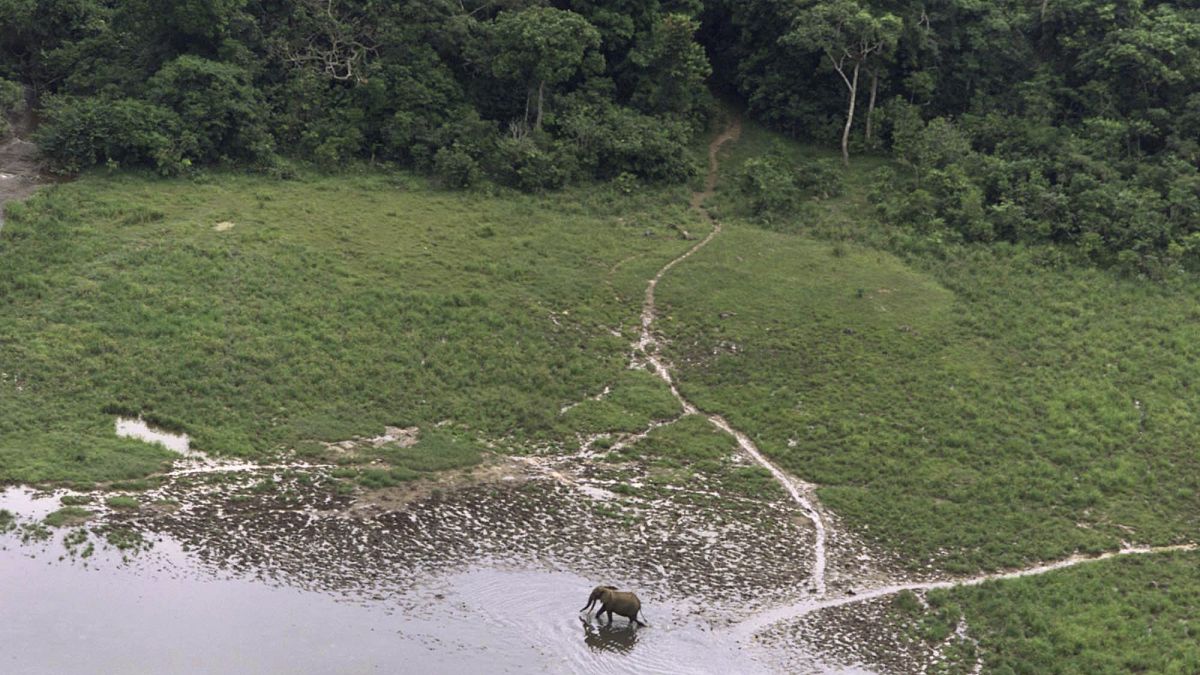Gabon is being paid millions to fight deforestation by a donor that is Western Europe’s largest gas and oil producer and is currently drilling in the Arctic.
This week Gabon received the first $17m payment from a $150m deal to reduce deforestation and protect its rainforest.
Though the project is organised through the UN-sponsored Central African Forest Initiative (CAFI), it is being funded entirely by Norway.
It’s good news: developing countries desperately need economic incentives to revise their relationship with tropical forests. However, this investment may also be a distraction - one with dangerous consequences.
Rainforests are crucial to mitigating dangerous global warming. They act as vital carbon sinks and are guardians of biodiversity. One rainforest can offset an entire country’s carbon emissions and can be home to millions of plant and animal species. The Amazon, for example, is home to 10% of all species on Earth.
And it’s true, rainforests are under threat.
Scientists believe they’re reaching a dangerous ‘tipping point’ and research suggests their ability to absorb carbon is deteriorating as deforestation increases. In Brazil, for example, deforestation swelled to a 14-year high in May.
However, rainforests also serve as important sources of economic revenue for developing countries. For example, over 80% of the land in Gabon is covered in tropical rainforests. The forestry sector is the nation’s second-largest source of profit and is dominated by the timber industry, specifically the manufacturing and export of veneer.
The hope is that this payment project – the first of its kind in Africa – will deter logging activity. But it’s going to take more than financial incentives to save the world’s dying forests. The economic means must be combined with the political and social will to ensure these policies are followed.
Importantly, the countries that invest in these projects cannot use these payments to shroud their own harmful environmental practices.
For instance, Norway is Western Europe’s largest gas and oil producer and is currently facing criticism for increased drilling in the Arctic, which is experiencing record heat (June temperatures soared as high as 31.9C) and rapid ozone loss.
In fact, climate activists and NGOs Young Friends of the Earth and Greenpeace are taking Norway to the European court of human rights (ECHR) over the matter.
They argue the arctic drilling will unequivocally damage the lives of future generations by permanently harming the environment. This is backed by results from a recent expedition where scientists discovered the Arctic is melting at an unprecedented rate. Distressingly, it may have already surpassed an irreversible tipping point.
It’s not unreasonable to presume that part of the reason Norway is paying Gabon to protect its carbon sink is so Norway can destroy its own. And it does make sense. After all, the oil industry is responsible for padding Norway’s sovereign wealth fund with $1.4 trillion. Why would they want to stop profiting off environmental destruction if it meant forgoing multi-generational economic security?
Instead, Norway can pay a developing country a fraction of their wealth to protect its environmental resources. However, in the process, the country’s development is restricted by policies wealthier countries never had.
Indeed, this is not an isolated issue. The EU has come under increasing fire for implementing environmental policies that restrict the abilities of developing countries to progress. For instance, the EU plans to ban palm oil as a biofuel, even though it is intrinsic to economies like Malaysia’s.
The palm oil sector is responsible for employing 650,000 smallholder farmers in Malaysia and has helped millions escape poverty. Unfortunately, the sector has also been linked to deforestation and habitat loss.
But the EU’s replacement for palm oil will be even more harmful. All alternative oil crops – rapeseed, sunflower and soy – require more land and water to produce the same amount of oil. This means banning palm oil would displace the effects of climate change, not solve them.
Moreover, Malaysia’s invested heavily into sustainable palm oil and has even implemented a mandatory certification scheme called The Malaysian Sustainable Palm Oil (MSPO). The MSPO is legally enforced and requires farmers to protect biodiversity, ensure labour rights and halt deforestation. Today, almost 90% of Malaysian palm oil plantations are certified sustainable.
The EU’s palm oil boycott ignores the progress in sustainable cultivation but also overlooks its own culpability in deforestation. Beyond the fact European trade is guilty for 16% of tropical deforestation (second after China), Europe destroyed almost all its forests on its journey to wealth. Today, only 4% remains untouched and in total, forests cover 37.7% of the EU while in Malaysia it’s 62.3%.
We need innovative solutions which include developing countries and involve financial incentives to tackle the environmental concerns facing our world. And of course, we must safeguard the world’s rainforests. But these solutions must be transparent and equitable.
It’s imperative developing countries aren’t used as scapegoats for wealthy nations' activities, especially when those activities are not only more lucrative but also more harmful.
After all, we won’t win the climate fight if we’re not all on the same page.
Muhammed Magassy is a Member of Parliament for The Economic Community of West African States (ECOWAS) and a member of The Gambia’s National Assembly. He is executive director of the Magassy Foundation for Relevant Easy Adult Literacy.
